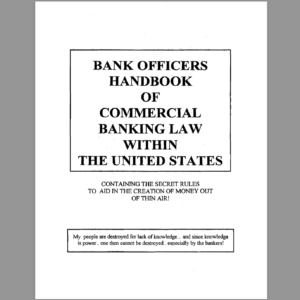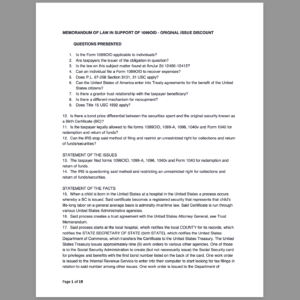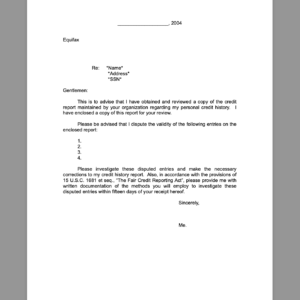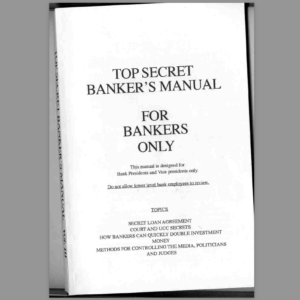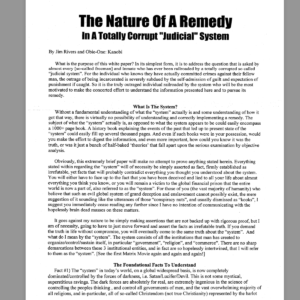Most people working in the United States are handed a W-4 on day one of employment. They fill it out automatically, not realizing they’ve just entered into a binding legal and tax relationship with the federal government.
But did you know you may have a lawful right to not use the W-4, and instead file a W-8BEN — the IRS form used to declare foreign status?
To understand your options and how to lawfully assert them, you must first understand how these forms work, what they truly mean, and who benefits when you sign them.
🔍 The Four Key IRS Forms That Control Your Labor
Let’s break it down:
| Form | Purpose | Used By |
|---|---|---|
| W-4 | Tells employer how much tax to withhold from your paycheck | U.S. persons working as statutory employees |
| W-2 | Year-end wage report showing earnings and tax withheld | Issued to U.S. employees by employer |
| W-9 | Certifies U.S. person status for payments made outside of payroll | U.S. contractors, freelancers, and businesses |
| W-8BEN | Certifies foreign status to exempt or reduce tax withholding | Nonresident aliens and foreign persons/entities |
💼 What Happens When You Sign a W-4?
When you sign a W-4, you are:
-
Declaring yourself a U.S. person under IRS definitions (see IRC § 7701(a))
-
Agreeing that your labor is subject to federal income tax as “wages”
-
Entering into a voluntary withholding agreement under 26 CFR § 31.3402(p)-1
In other words, you contract into federal tax liability — and give your employer the legal power to:
-
Withhold taxes from your pay
-
Report your labor to the IRS
-
Issue you a W-2
🏦 The W-9: A Similar Contract for Non-Employees
If you’re a contractor, freelancer, or business owner, the IRS may ask for a W-9. This form:
-
Declares your status as a U.S. person
-
Provides your TIN (usually your SSN or EIN)
-
Allows the payer to issue a 1099, which reports payments to you
Like the W-4, signing a W-9 also enters you into the federal income tax system. Once submitted, the IRS assumes you’re a taxable entity within the United States jurisdiction, even if you’re not an employee.
🌐 The W-8BEN: Certifying Foreign Status
The W-8BEN is used by individuals who are:
-
Nonresident aliens, OR
-
Operating in a foreign capacity (through trusts, foreign-classified entities, or corrected status)
It certifies that:
“I am not a U.S. person. I do not engage in a U.S. trade or business. I am not subject to U.S. income tax withholding except as specified by treaty.”
This form:
-
Lawfully exempts you from W-4 or W-9 obligations
-
Prevents the issuance of a W-2 or 1099
-
May result in a Form 1042-S instead, or no reporting at all
⚠️ Important Caveats
The IRS and courts presume you are a U.S. taxpayer by default. Unless you properly rebut that presumption, they will treat your labor as taxable income under federal jurisdiction.
If you use a W-8BEN incorrectly or without the proper legal foundation, the IRS may consider it fraudulent, which can lead to penalties or enforcement.
To lawfully use a W-8BEN instead of a W-4 or W-9, you must establish:
✅ 1. Proper Status Correction
You need to correct your legal status:
-
Declare yourself as a non-citizen national, foreign national, or nonresident alien
-
Remove yourself from presumptions of 14th Amendment federal citizenship
-
Record the proper affidavits, declarations, and notices with appropriate authorities
✅ 2. Foreign Trust or Entity Structure
You must act through a:
-
Private foreign trust
-
Foreign-classified LLC or foundation
-
Foreign disregarded entity, if operating in commerce
The entity — not the individual — uses the W-8BEN-E to declare its foreign status and exemption from reporting requirements like the W-9.
✅ 3. Private Contractual Relationship (Not Statutory Employment)
To avoid W-4/W-2 classification:
-
Your labor must be performed under private agreement, not as an “employee” under federal statutes
-
You cannot participate in federal benefit programs (Social Security, unemployment, etc.)
-
You must not operate under federal privileges
In short, you must remain outside the statutory employment system to avoid the legal obligations that come with it.
🔐 Who Benefits From These Forms?
| Form | Who Benefits | How |
|---|---|---|
| W-4 | IRS, Employer | IRS gets pre-paid tax. Employer avoids liability, deducts wages. |
| W-2 | IRS | Evidence of taxable wages under federal jurisdiction |
| W-9 | IRS, Payer | IRS gets reporting. Payer avoids backup withholding liability |
| W-8BEN | You (if lawfully filed) | Exempts you from withholding; protects foreign status |
✅ Summary: Reclaiming Your Status
If you’re tired of:
-
Automatic tax withholding,
-
Presumptions of U.S. person status,
-
Having your labor treated as taxable income under federal definitions…
…then it’s time to look deeper into the lawful use of the W-8BEN, foreign trusts, and private contracts.
This isn’t tax evasion — it’s status correction, contract law, and jurisdictional clarity.
But remember: to succeed with this approach, you must do it correctly and with lawful standing. Anything less can result in rejection or worse — enforcement under fraud statutes.




